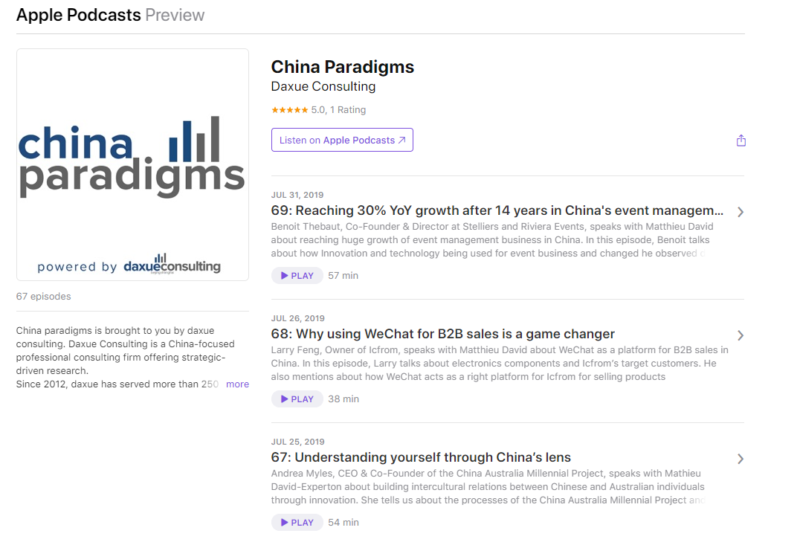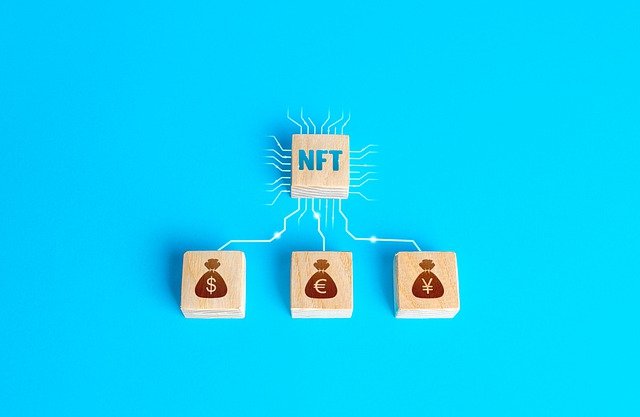It is undeniable that blockchain is an ingenious invention—the brainchild of an individual or collective of tech-savvies known by the pseudonym of Satoshi Nakamoto. However, since its first public use in 2009, Blockchain has evolved into something much more large than what its creator/s could have ever dreamed of. Not only has this technology gained recognition within the cybercommunity, but even heavyweights like the Chinese government show interest in the development of blockchain technology in China and its role in the Chinese tech economy. Therefore, many understandably tend to wonder: What acutally is Blockchain? And what is the role of blockchain in China?
First of all, blockchain is the backbone of a new type of internet technology, which allows a decentralised distribution of digital information. Originally devised to support digital currencies like Bitcoin, which is often referred to as the gold standard of cryptocurrencies, the tech community is being joined by many research institutions looking to find many other potential uses for this technology.
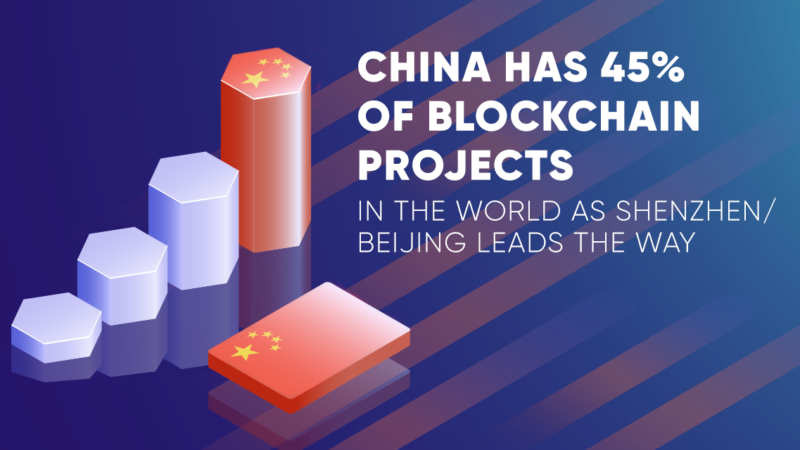
On a more technical level, the blockchain network does not rely on a central authority—by definition, it is a democratized system. In addition, since it provides a shared and immutable ledger, the information stored in the blockchain is accessible to anyone and everyone on the network. Hence, the blockchain is, by its very nature, transparent and everyone that participates in it is accountable for their actions. If one happens to have been following digital investments, banking or cryptocurrency development over the last ten years, be it specifically related to the Chinese blockchain market, the mind-boggling development of the likes of Bitcoin and Etherium is something quite familiar. The main goal of blockchain is to allow digital information to be recorded and distributed but not edited. In a country like China, which, despite its astounding economic growth is still in its developmental phase, the principle behind blockchain technologies could be useful to accelerate its transition to the status of a developed nation by improving a wide range of practices in many fields.
What Is the state of the blockchain technology in China?
As of November 2018, China led the world in new blockchain projects, with 263 in progress. According to the data service provider based in Beijing Blockdata, the figure accounted for about 25 percent of such projects globally. In addition, In 2018 global blockchain survey conducted at the international level, nearly 50 percent of the surveyees in China said that blockchain technology was already being used within their organization, compared with only 14 percent in the United States.
The businesses capitalizing on China’s digital economy
On the entrepreneurial side, the company Qulian Technology Co., in Hangzhou, is an example of how companies capitalize on the expanding Chinese digital economy. In 2016, the company launched, the project Hyperchain, which focuses primarily on enterprise-level network solutions for government agencies, companies and industry alliances.
However, Qulian is just one of the 615 companies and start-ups that have chosen China as the place where to develop blockchain-related technologies. If the number of burgeoning companies were not impressive enough, according to a report published in December 2018 by the Beijing-based think tank EO Intelligence revealed that 82 percent of these companies were founded between 2016 and 2018, at the same time half of the companies are working on the adoption of blockchain technology in the financial industry. In June 2018, the company said it had raised a total of 1.5 billion yuan ($222 million) in investments—by far the largest amount in the Chinese blockchain market at the time.

Local governments investing in blockchain and cryptocurrency in China
In June 2018, the city of Nanjing has launched a 10 billion yuan blockchain (equivalent to almost 1.5 billion USD) investment fund to foster the development of cryptocurrency and public blockchain technology in China. Moreover, the capital of Jiangsu province launched, in partnership with the Zhongguancun Blockchain Industry Alliance, the Beijing-based alliance, which comprises blockchain companies and government research institutes. To add relevance to this initiative, the official announcement of the $1.48 billion funds was made at the inaugural Industrial Public Chain Summit (IPCS), which was attended, among others, by the high-level local government official Luo Qun, deputy secretary of the Communist Party of China in Nanjing.
The central government warming up to blockchain and cryptocurrency in China
Initially, the central government showed diffidence of the rapid development of the blockchain technology in China and the expansion of the Chinese blockchain market. So much so, that in 2018 the government started clamping down on unregulated cryptocurrency trading. However, since the beginning of this year, the government has softened its stance. For instance, President Xi Jinping announced, during the annual conference at the Chinese Academy of Sciences, that the central government sees blockchain technology as helping to accelerate breakthroughs made in many fields of technology. Needless to say that these words have been widely understood as an informal endorsement, very much in line with the government’s history of cautious and gradual endorsements.
Xi’s endorsement
“…Since the beginning of the 21st century, the global scientific and technological innovation has entered a time of unprecedented vibrant activity. A new period of scientific and technological revolution and industrial transformation is reshaping the global innovation map as well as the global economic structure. A new generation of information technology embodied by artificial intelligence, quantum information, mobile communication, Internet of Things, and blockchain is accelerating the breakthroughs towards new applications. New fields of life sciences like synthetic biology, gene editing, brain science, and regenerative medicine will bring great changes. Advanced manufacturing technologies that integrate robots, digitization, and new materials are accelerating the transition of manufacturing into an intelligent, service-oriented, and green sector. The accelerated development of energy technologies, with the goal of clean, efficient, and sustainable development, will lead to a global energy transformation. Technologies encompassing the domains of Space and ocean are expanding the frontiers of human existence to new realms of development…”
(Translation provided by the author of this article. The original version can be found here)
Institutions’ reception of blockchain in China
After listening to the words of the Chinese general secretary, people may be tempted to wonder whether we are on the verge of a history-altering disruptive technology that will have a massive social impact, not only on the Chinese digital economy but also on the world economy at large. Or, is blockchain the latest in a long list of tech buzzwords?
The fact that so many government officials are taking pretty clear positions on the matter seems to suggest that blockchain technologies should be taken seriously. In fact, while officials welcomed a World Economic Forum whitepaper titled “Realizing the Potential of Blockchain”, which was published at the Annual Meeting of the New Champions in Dalian in June 2017, in September of the same year, the People’s Bank of China (PBoC) announced that it would ban with immediate effect at the national level the phenomenon of initial coin offerings (ICOs)—a process very similar to IPOs, through which crypto start-ups raise funds to kickstart a project—and take on to shut down all domestic cryptocurrency exchanges.

At the same time, the Director of the Institute of Finance at PBoC, Sun Guofeng clarified that the ban “should not prevent relevant financial technology companies, industry bodies and other technology firms from continuing their research into blockchain technology”. As a matter of fact, a mere two weeks later, the Ministry of Industry and Information Technology launched the Trusted Blockchain Open Lab. According to the ministry, The lab is meant to promote the exploration of blockchain technology and its applications in the Chinese digital economy without becoming involved in the issuance of cryptocurrencies, or the exchanges related to the blockchain trade. In general, it could be argued that such pro-blockchain and anti-cryptocurrency policies are a sign that policymakers are on the one side cognizant that the public still lacks a good understanding of this technology, on the other side are carefully weighing in all the potential applications of the Blockchain technology in China. In fact, the crackdown on highly speculative start-ups, which have populated the Chinese blockchain market since the very beginning, has not undermined the ability of the policymakers to encourage higher calibre and better-resourced players from unlocking the true potential of the technology. For example, Alibaba is one such player. In April 2017, the company decided to open—at its HQ in Hangzhou—the very first blockchain industrial zone, which was nicknamed “Blockchain Valley”.
Associations and university groups hosting blockchain events
Along with private and public entities, further actors that are playing an active role in the development of the blockchain technology in China are the university student groups. Some of the most active groups are based in Tsinghua university. These groups run WeChat groups, blogs, associations like the Tsinghua Blockchain Association as well as organise events centered on Blockchain technology in China, the Chinese tech economy and more. In addition to these groups, the prestigious Schwarzmann College, which manages the Global Solutions Festival, hosts regular seminars on the latest development in areas like AI technology, the Chinese digital economy, and China’s blockchain market.
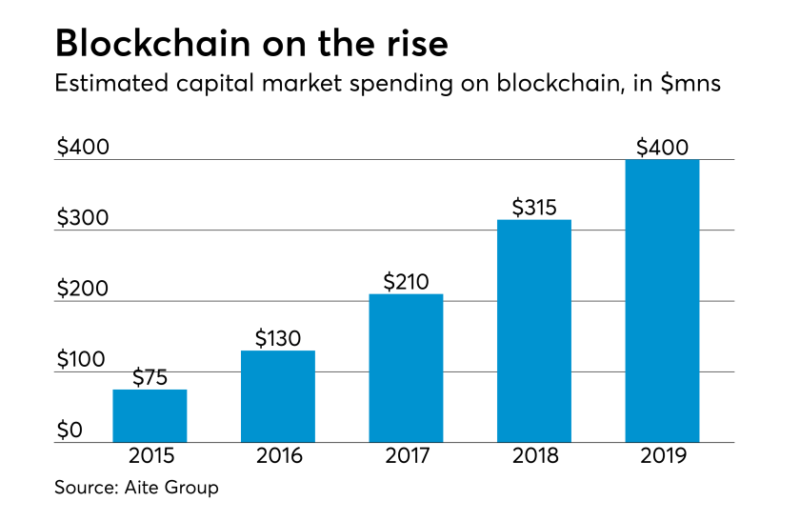
Why is blockchain technology receiving so much attention in China?
What makes blockchain technology particularly enticing for such a diverse group of private and public actors is the extremely flexible nature of the idea behind the blockchain technology. Specifically, a blockchain is made up of “Blocks”, which are connected to one another to form the blockchain. In fact, an effective use of blockchain technology in China could help the country overcome some serious structural challenges that lie on its path to modernisation and deliver key services for growth, like a greater capillarization of the financial institutions, which would allow the Chinese digital economy to reach a greater number of people; improvements in investment transparency, which would allow the Chinese tech economy to secure more funding; and even improve governance, thanks improved communication between grassroots and authorities.
The mechanics of the blockchain technology
The building blocks of the blockchain technology
As it is extensively explained on Investopedia, The blocks are nothing more than digital pieces of information. And the handling of this information is divided into three parts:
- First, blocks store information about transactions like date, time, and the value of the information translated into currency.
- Second, blocks store information about who is taking part in the transactions. A block for your online splurge purchase would record your name along with that of the website where you finalised the purchase. However, Instead of using your actual name, the purchase is recorded without any identifying information, instead, it is recognised using a unique code that works like a “digital signature”.
- Third, blocks store information in codes called “hash” that makes it possible to distinguish each one of the blocks forming the blockchain. Very much like the individual names that help us distinguish a single person from the group.
High-security technology
Understanding the three dimensions of blocks, however, is not all that there is to know about this technology. In fact, before a block is added to the blockchain system, four passages must be completed:
- A transaction must occur
- That transaction must be verified
- That transaction must be stored in a block
- That block must be given a hash
Finally, once the new block is added to the blockchain system, it becomes visible to anyone in the blockchain. Every computer in the blockchain network obtains its own copy of the entire blockchain, that is there are thousands, if not millions of copies of the blockchain scattered throughout the network. Furthermore, each one of the copies stored in the computers that have access to the blockchain is identical, which means that this spreading of information across the network of computers makes the information stored in every block extremely difficult to manipulate. In fact, with the blockchain technology, there is not a single and definitive account of events that is stored in a single server, which in turn can be manipulated by whoever has access to it. Instead, any would-be hacker or mischievious actor would be required to manipulate every copy of the blockchain on the network. In order to achieve this goal, a single user should be able to gain control over at least 51% of the computers participating in the blockchain network. There is no need to say that this aspect of blockchain technology alone makes a very good argument for its implementation in many activities.
Blockchain’s practical applications to kickstart the fourth industrial revolution
As it may be pretty clear by now, blocks on the blockchain are very useful to store data about monetary transactions. However, it turns out that blockchain is much more than that. Given that this technology offers a pretty reliable way of storing data about other types of transactions, as well.
Banking sector
Arguably, no industry is poised to benefit from implementing blockchain technologies into its business operations more than the banking sector. For instance, Financial institutions operate only during business hours, which usually means five days a week. Blockchain, on the other hand, operates 24/7. In fact, with the integration of blockchain systems into their infrastructures, banks can offer consumers transactions that ae processed in as little as 10 minutes; in other words, the time it takes to add a block to the blockchain network, irrespective of time or day of the week.
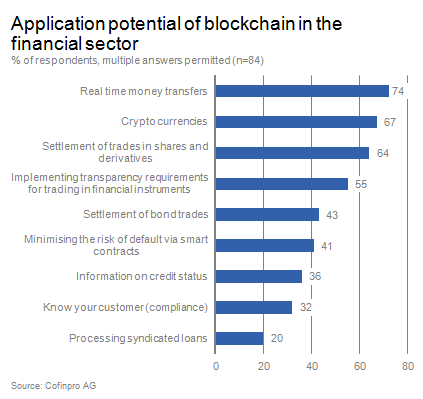
Cryptocurrency
Blockchain is the bedrock if cryptocurrencies like Bitcoin. This specific application of blockchain technology experienced dramatic development in the last years. So much so that sometimes Bitcoin—the gold standard of the crypto world—is regarded as a new safe haven asset comparable to real gold. It must be noted that the currency made the fortune of some in times of cryptocurrency speculative sprees and political and economic uncertainty. This uncertainty is one of the reasons why cryptocurrencies have been met with a mixture of enthusiasm and diffidence in many places, included China with its vibrant blockchain market. On the one side, the fear of financial uncertainty and the sense of disenfranchisement that may follow the decision of some banks to effectuate quantitative easing to stabilise the national economy are some of the worries out of which Bitcoin was born. In fact, by dispersing its operations throughout a network of computers, the blockchain allows a cryptocurrency to operate without the need for a central authority. On the other side, authorities, especially in China, are understandably worried that a legislative vacuum may cause more harm than good, to the detriment of the Chinese digital market, for example.
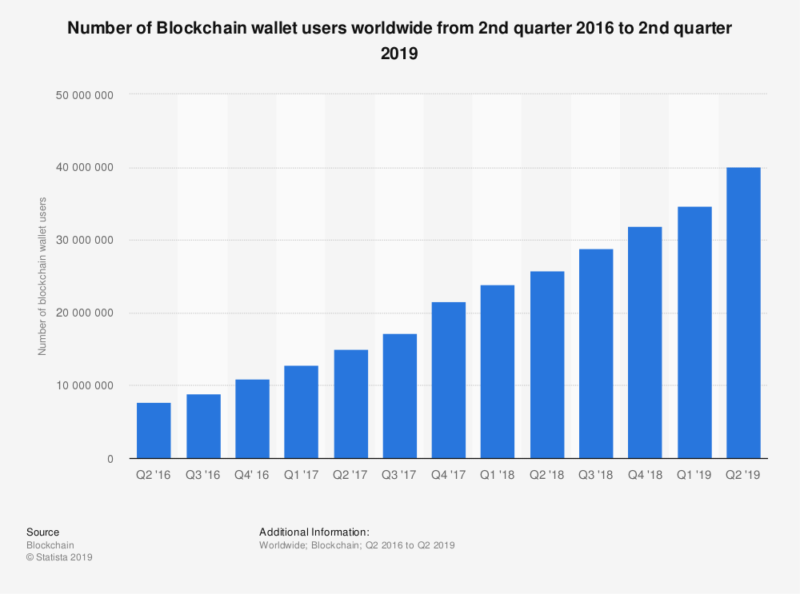
Blockchain in China’s Healthcare
Healthcare is one of the sectors that have gained the greatest interest in China. In fact, the vibrancy of blockchain technology in China is shown by the fact that a tech giant like Baidu took on the challenge to embed a blockchain system in its health services. Baidu is just one of the many providers that are trying to leverage blockchain technology to safely store patients’ medical records.
Blockchain in China’s Property Records
One very interesting potential application of blockchain is the possibility to eliminate the need for scanning documents and tracking down physical records in a local recording office. In fact, that is exactly what the city of Loudi in Hunan province is doing. The city administration launched a blockchain-based platform that allows smart contracts. A smart contract is a computerised code that can be saved on the blockchain network to facilitate, verify, or negotiate a contract agreement. The specific case of Loudi regards taxation, real estate and other administrative activities, thus promising to improve considerably bureaucratic practices.
Blockchain in China’s Supply Chain
A further sector that may greatly benefit from the adoption of blockchain technologies is logistics. In fact, suppliers can use blockchain applications to trace the origins of goods that logistics companies handle on a daily basis. One such example is Vchain Project, which offers real-world business applications thanks to its blockchain solutions that have gained recognition across the Chinese tech economy as well as outside China.
Uses in consensus-driven applications
On a more abstract level of analysis, blockchain offers also the possibility to make consensus-driven decisions more efficient. In fact, the inherent high level of security of this technology, and the equal distribution of the blockchain network among the participants promise to shorten greatly the “transmission belt” of complex agreement-based decisions. In other words, companies would be able to implement more flexible internal and external hierarchies that can easily adapt to the rapidly changing Chinese tech economy.
Current limitations of blockchain technology
Energy-consuming technology
Although blockchain offers many advantages, it still remains a technology in its infancy. In fact, if on the one side blockchain can save users money on transaction fees, on the other side the technology is far from free. The energy that a blockchain system consumes is surprisingly high. First of all, the “proof of work” that bitcoin uses to validate transactions requires considerable amounts of computational power, which in turn requires energy. This aspect of the blockchain can be quite challenging, that notwithstanding, finding sustainable solutions that go in the direction of new green policies promoted by the Chinese government could unfold unexpected opportunities, both in terms of economic returns and business’ public image.
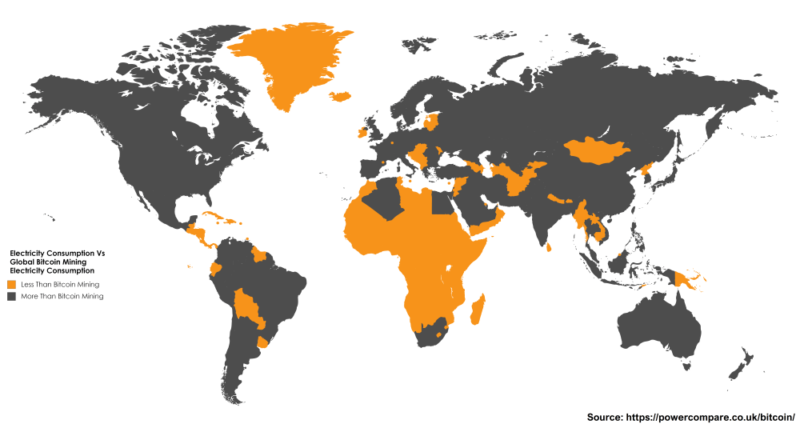
Slow transaction speed
Another important limiting factor in the adoption of blockchain technologies, in particular, cryptocurrencies like Bitcoin, is connected to the inefficiencies of the “proof of work” system. In fact, Bitcoin requires almost ten minutes to add a new block to the blockchain. At such rate, the blockchain network can only handle about seven transactions per second (TPS). In comparison, Also, although other cryptocurrencies, such as Bitcoin Cash (60 TPS) and Ethereum (20 TPS), show a better performance than bitcoin, they are still constrained by the current blockchain technology that is dwarfed by the likes of Legacy Brand Visa, which can process an impressive 24000 TSP.
A new dot.com bubble?
One further issue that everyone considering investments in blockchain-related projects should be wary of is that of a dot.com bubble-like phenomenon. In fact, it is important not to forget that between the 1990s and the 2000s international markets experienced a surge in speculative practices related to internet-based startups. At the turn of the century, there was the impression that in the space of a couple of years everything would be digitised and the entire global economy would suddenly shift to the cyberspace. Two decades later, we know that those assumptions were only partially true. In fact, much of that hype vanished together with the many startups that did not survive the explosion of the dot.com bubble. Today, shopping malls and grocery stores have not shut down yet, but it is also true that online retailers like Alibaba, Taobao, and Amazon expanded their businesses at an unheard rate in the last years, especially—with the exception of Amazon—in the expanding Chinese digital economy.
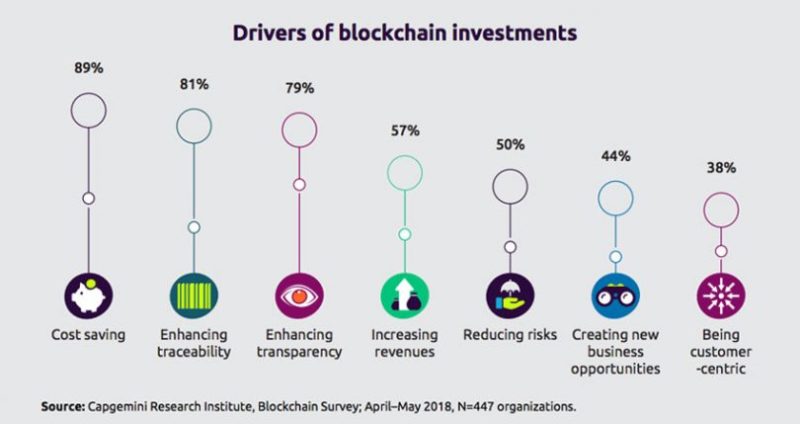
Should businesses take the adoption of blockchain technology in China seriously?
Today, blockchain is probably living—much like the internet in the dot.com era—its halcyon days. Among the many boisterous claims and vague predictions, the blockchain technology may seriously gain ground in sectors like healthcare and fintech. In fact, The adoption of fintech applications has, counterintuitively, found a more fertile terrain in China and other developing nations than in the historically industrialised nations, in what academia defines as the relative advantage of backwardness. According to this proposition, the lack of physical infrastructures may encourage a more rapid adoption of blockchain technologies. In the Chinese context, the importance given by the Chinese government to the Chinese tech economy, the Chinese digital economy and its cautious but promising endorsements of blockchain technology in China are important signals that must be taken seriously by investors.
Author: Abebe Gasparini
Let China Paradigm have a positive economic impact on your business!
Listen to China Paradigm on iTunes
